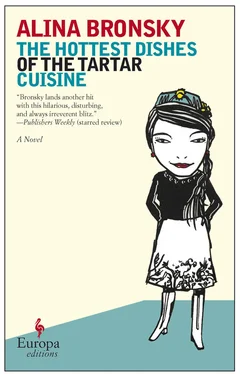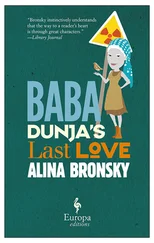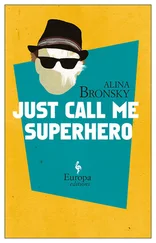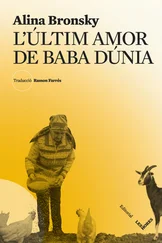“That’s Aminat,” I said. “She’s very talented.”
She was on TV all the time now. John looked silently at the screen. He didn’t know anything — how I raised Aminat, how much effort I’d made, how time and time again she had spurned my good will, and how finally she had run away from me. He didn’t know anything about me, and I didn’t have any desire to tell him.
“Pretty girl,” said John. “Though much too thin. Her voice is unbelievable.”
“You think so?”
He didn’t have any grandkids and was lonely. I thought it was gallant of him to watch the show — with Aminat struggling to hit the notes — without saying anything more. Not then and not the next day or the one after that.
Suddenly I had everything I needed, without having to fight for it. It was an unfamiliar feeling. I didn’t need an alarm in the morning. I could sleep in. I didn’t need to make breakfast. John took care of that. He did the shopping. It turned out he could cook. Simple Italian dishes, but they tasted good. He served the food in the living room and cleaned up himself afterwards. I didn’t even go into the kitchen. I was mostly in my bedroom, occasionally in the living room (either eating at the table or sitting in the chair), and also sometimes in the garden. John’s house had a magnificent garden — giant, with rosebushes lining the house, and softly sloping down to fruit trees that were already setting fruit.
“Why don’t you plant vegetables?” I asked.
“I don’t know how,” said John.
I took off the rhinestone-bejeweled slippers with high heels and walked barefoot on the lawn. The lawn was his, too. He was a real English gentleman.
The grass caressed the soles of my feet. Behind the fruit trees I discovered a greenhouse. The glass was frosted with pollen. I ran my finger over it. I’d never been here. John’s wife had probably raised tomatoes here.
“I do well with tomatoes,” I told John over tea that afternoon. We were sitting on the terrace with our cups of tea in front of us and a tin of gingersnaps. “I have a green thumb.”
John answered: “Go ahead and grow them for next summer then.”
We went shopping in shops I’d never been in before. The saleswomen brought me clothing and lace underwear, John drank espresso on an upholstered bench in the corner, and he just raised his eyebrow occasionally when I came out of the changing room and walked around to see whether the clothes fit well.
John’s face was inscrutable and I didn’t ask his opinion. I knew that I looked good and that I had a nice figure. I also had great taste — I left the dressing room only in things that accentuated the delicateness and gentle curviness of my body. I could see in the merciless light of the dressing room itself that here and there some muscle and skin had lost its tautness. But I knew I’d soon have that back in hand. It stood me in good stead to be so slim just then. I had always had a healthy appetite, but it had left me of late. I was living primarily on tea with milk and ginger snaps.
I didn’t say thank you when John paid with his credit card and carried the shopping bags to the car. I knew I had earned it all. At home I changed and we watched Aminat again. She looked better, too. She’d gotten over her constant trembling and the panic had faded from her eyes. Her hair was freshly washed and fell so naturally over her shoulders that I could tell immediately how much work had gone into it. She was now one of twenty girls being shouted at by three choreographers. Now and then they inserted scenes in which the girls sang individually and I thought to myself: Mine is still the prettiest.
John occasionally said: “What a horrible show.”
And less frequently: “My God, what a voice.”
I didn’t think Aminat sang very nicely. I’d often heard her and I had never particularly liked the way she sang. Her voice wasn’t powerful or melodic. But it did tug at your heartstrings. That much was true, I had to admit. And it was probably the reason they’d chosen Aminat. People liked it when someone tugged at their heart strings. I couldn’t understand why.
I put on a silk pantsuit and new golden shoes and put my hair up. I bought a rotisserie chicken, peppers, marinated sheep’s milk cheese, and a honeydew melon. I didn’t ask John whether I could use his Mercedes, I simply said: “You needn’t accompany me today.”
He nodded.
How often I had taken this same route on the bus, transferring twice, waiting between five and forty-five minutes at the stop. I didn’t feel a sense of triumph now, just a blessed peace.
I parked in front of Dieter’s building. How long ago was it that I had moved out of here? How many years of my life had I spent here? I pulled out my key and walked past the burnt mailbox — someone must have put a firecracker in it. The place smelled stuffy, like stagnation and chronic sinus infections.
I went to open the apartment door with a familiar motion and felt a faint echo of the one-thousand-times-more-powerful worries the turning of this key had caused my soul in the past.
I fought a bit with the lock. It jammed and wouldn’t let me take the key back out. Someone shuffled toward the door. It reminded me of a sound I’d heard while working at the women’s ward of the hospital — when, after a stomach operation, my patients ventured into the hallway for their first steps, bracing themselves with their hand against the wall, they made a similar shuffling noise. A ghost now appeared in the doorframe. He was wearing a worn bathrobe that allowed a view of skinny legs and an equally gaunt neck poking out of the greasy collar. Dieter’s face was no longer Dieter’s face. Maybe it had something to do with the fact that his hair was also missing.
“Oh!” I said, trying to sound happy as I looked him in the eyes. “You look good, and I’ve brought something very nice!”
If I had ever permitted myself to talk to one of my patients in a tone like that, I would have despised myself for a week afterwards.
I put utensils on the table, cut up the vegetables, fished a couple of plates from the sink, and washed the dried food bits off of them. Then I brushed the crumbs off the table and put down a clean tablecloth.
“Food!” I called.
Dieter sat down at the table and lifted a piece of roast chicken to his mouth. I had already removed the skin for him. He chewed on it and swallowed it. I could see it make its way painstakingly down his throat.
“And?” he asked. “What’s the story?”
He meant with me and John. I shrugged my shoulders. I ate the entire chicken by myself. Along with fresh organic peppers and crunchy chunks of bread torn from a baguette. Dieter wasn’t hungry and chewing caused him pain.
“Everyone has left me,” said Dieter. “Everyone, everyone. Even you.”
I chewed thoroughly and looked past him.
But there was nothing about me
I didn’t tell John that Dieter was going to die soon. The good thing about John was that you didn’t have say much to him and yet he knew everything. He always handled the bare necessities. That may not sound like much, but it was. John did the things that were absolutely necessary — and without ever needing to be asked. Everything else he ignored. But everything else was superfluous.
Sulfia came less often now. She didn’t like TV, and I didn’t want to monopolize her. I let her peel away. Together with John I watched the show featuring Aminat. John didn’t offer any more commentary. But I talked nonstop.
“Look, John, what an outfit they’ve packed her into this time. You can’t even recognize her. But maybe it’s better that way. She’s moving much more confidently onstage than last time, don’t you think, John? The dance lessons really helped. She’ll show them all, my Aminat. That baldheaded judge must be sleeping with her — he loves her even when she doesn’t hit a single note. And that pretty woman, the other judge — why did she have tears in her eyes when Aminat sang? It was obvious to everyone. And the voting — the viewers deciding who stays and who goes. . surely that’s all rigged, right? Otherwise she couldn’t possibly still be in the competition. John, why does everyone still call her Anita and Alina — is it really so difficult to remember her name? The main thing is that they all continue to believe she’s really that young. When I was her age. . ”
Читать дальше












